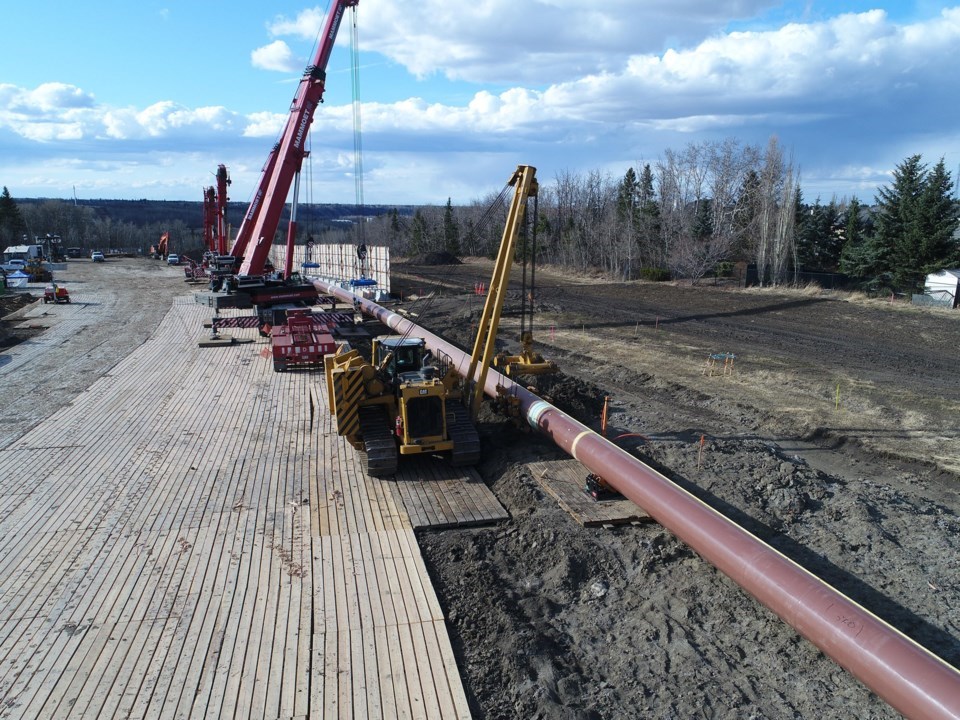While it may end up being a white elephant for the Trudeau government, the Trans Mountain pipeline expansion is expected to give a much-needed lift to oil sands producers in Alberta, with Canadian oil production increasing by 375,000 barrels per day over the next two years.
That’s according to a new Canadian energy forecast from Deloitte.
Meanwhile, natural gas prices are expected to stay relatively flat, despite a loss of Russian natural gas in Europe that has led to an increased demand for natural gas exports from the U.S. in the form of LNG.
That’s good news for Canadians who heat their homes and businesses with natural gas.
Canadian natural gas prices roughly doubled last year, partly due to increased exports of American LNG to fill a void left by Russian natural gas in Europe.
But Europe’s natural gas storage is now at 90 per cent capacity, Deloitte notes in its report, and there has been increased volumes of gas produced in the U.S. as a kind of byproduct of increased shale oil production in the U.S.
As a result, Canadian natural gas prices, which last year hit $6 per 1,000 cubic feet (Mcf) or more, are now expected to be in the $2.75 Mcf to $3 Mcf range this year and next.
“I actually spent much of this year surprised why we didn’t have higher natural gas prices,” said Andrew Botterill, partner and energy and chemicals lead for Deloitte.
“While Canadian natural gas is an extremely competitive environment, it’s not necessarily exposed to all those global pressures, and it really comes down to what does the U.S. buy. And the U.S. has been significantly drilling their oil plays, and their oil plays in the Permian (Basin) bring on a lot of natural gas.
“On the consumer side, we aren’t going to worry about the cost to heat our homes or anything like that, like we feared last winter.”
About 10 per cent of the natural gas produced in the U.S. is a byproduct of shale oil production, which the Deloitte report notes increased to 12.8 million barrels per day (MMbbl/d) in June this year, which is close to the pre-pandemic high of 13 MMbbl/d.
The Trans Mountain pipeline expansion, which has ballooned in capital cost to $31 billion, has a targeted in-service date of the first quarter of 2024.
The expansion will add 590,000 barrels per day of capacity. Once oil is flowing on the new pipeline, it’s expected that a discount for Alberta heavy crude will narrow, Deloitte says in its latest report.
Despite a transition underway from fossil fuels to lower-carbon energy sources, the global demand for oil and gas continue to increase, Botterill noted.
There is pressure on oil and gas companies to invest in lower-carbon alternatives, like renewables and carbon capture and storage, Botterill said, but at the same time, there is also still a demand for the conventional oil and gas they produce.
“What we’re seeing is, global demand for hydrocarbons is growing and it continues to grow,” Botterill said. “The world is demanding more oil right now, so we’re going to need to deliver on that.”



